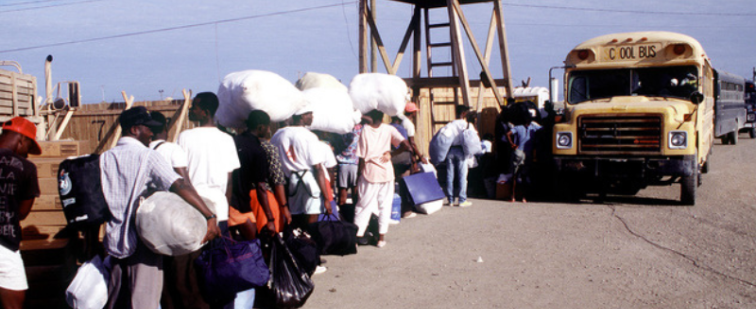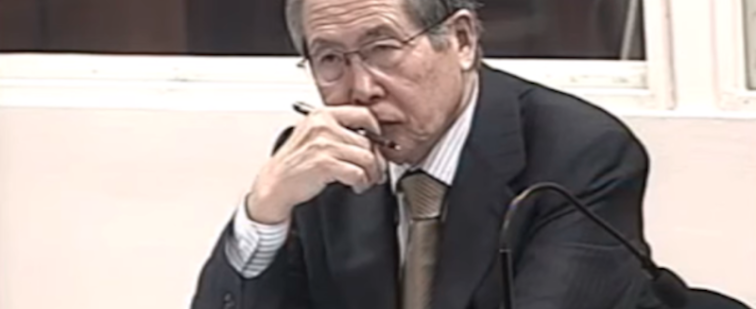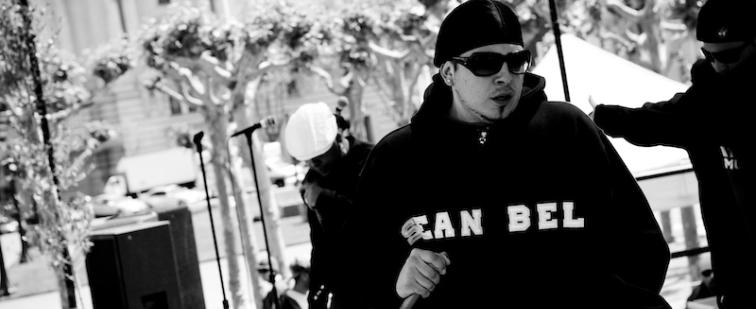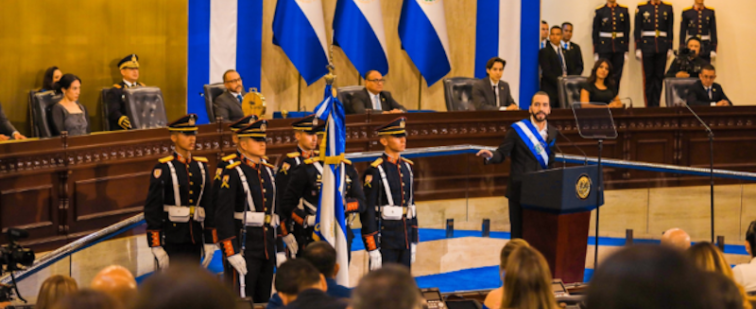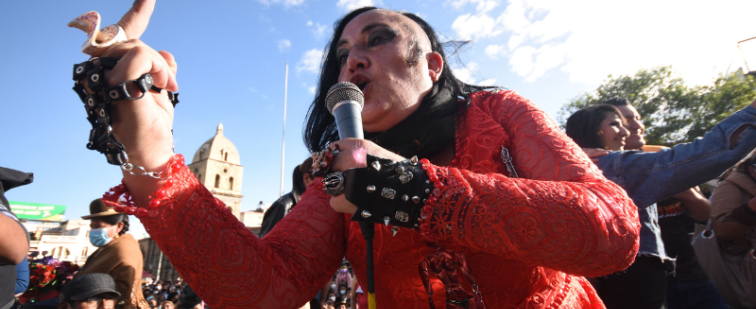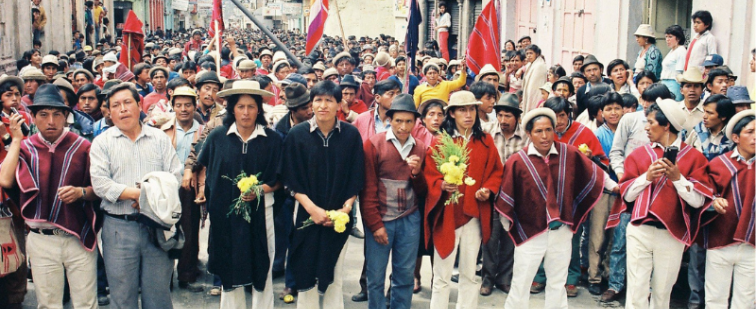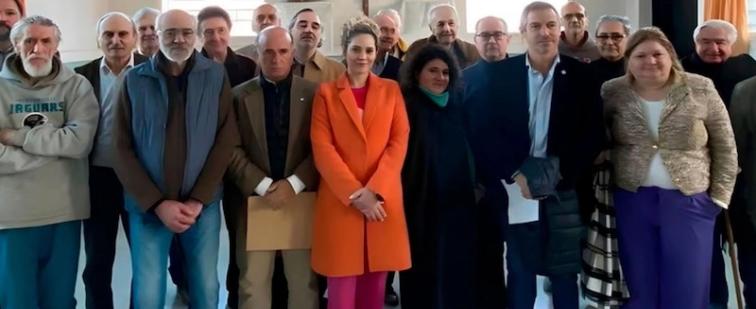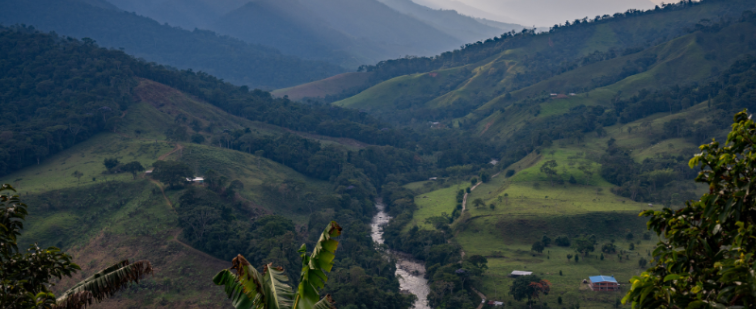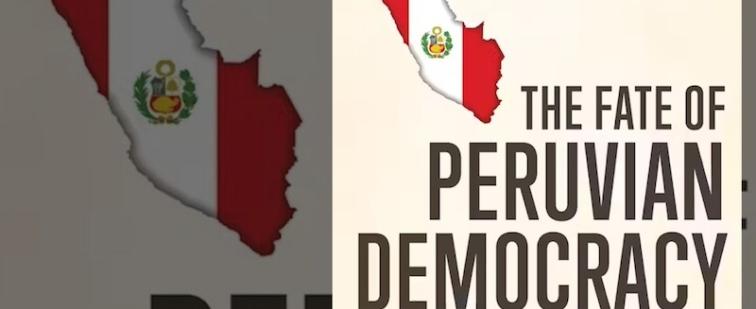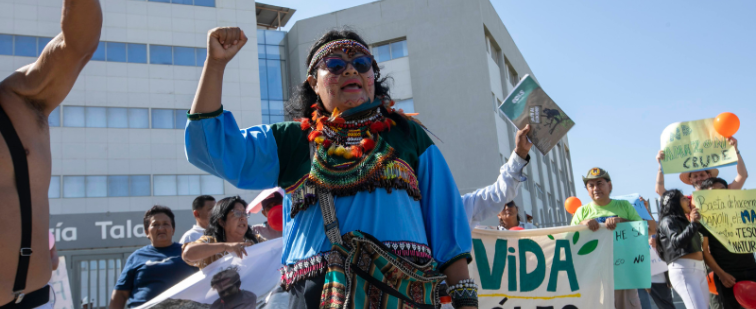Home
In the context of the ongoing para-politics scandal in Colombia, which has undermined the legitimacy of the right-wing government, the left is rapidly emerging as the new political force in the country. Colombia’s largest leftist guerrilla insurgency, the Revolutionary Armed Forces of Colombia (FARC) has been waging a war against the State for more than 40 years. But for the first time since the 1980s, a left-of-center political party is gaining prominence on both the local and national level, illustrating that Colombia is not immune to the electoral shift to the left that is occurring throughout the region.
After more than 20 years of waiting, communities in the highlands of Guatemala are finally able to bury their loved ones—victims of some of the most brutal violence of the country's 36-year civil war. After an arduous process of gathering testimonies, finding the mass graves, and exhuming the bodies, villagers hope the dead will finally be able to rest in peace.
Portraits taken during the inhumation process described in "The Martyrs are Home." The people pictured reside in the communities of Juá, Chel and Xaxmoxan, in the municipality of Chajul. The region is predominantly inhabited by the Ixil Mayan ethnic group.
As Rio de Janeiro prepared to host July’s Pan American Games, the largest sporting event in the hemisphere, private paramilitaries occupied favelas near two of the city’s main highways, in an apparent effort to impose security near crucial tourist infrastructure. A NACLA investigation, supported by the Samuel Chavkin Investigative Journalism Fund, finds that for many favela residents, the militias are little better than the gangs or corrupt police they have replaced.
The launch of the Bank of the South is an ambitious and strategic gambit in regional integration, one that could result in a truly regional development bank. Despite Brazilian concerns, this new institution is ready to be launched.
Since the mid-1970s this country has seen the spectacular growth of what is increasingly coming to be called the Non-Profit Industrial Complex (NPIC)—a sprawling constellation of private foundations, service organizations, charities, and institutionalized movement groups operating under 501(c)(3), a somewhat arcane IRS provision that exempts recognized organizations from paying income tax.
The elevator is broken in Bolivia’s Ministry of Campesino and Agricultural Affairs, so together with Arturo Mamani Poma and Salustiano Vargas Villca, I walk up to the sixth floor, where we find a small, dark office with three desks, a few computers, and a conference table. Mamani and Vargas, both members of the National Association of Quinoa Producers (Anapqui), have come to the La Paz office to request a loan to build a quinoa-processing plant.
With about three quarters of its population living in dense settlements, Latin America is the planet’s most urbanized region. It is also its most unequal. The well-to-do enclaves of major cities often stand shoulder to shoulder with vast poor areas, variously known as barriadas, barrios marginales, colonias, favelas, inquilinatos, rancherías. Though Latin American urban segregation traces back to the colonial era, most of today’s so-called megaslums and satellite cities have arisen in the last 40 years with rural-to-urban migration, which resulted in an almost 40% growth in the region’s urban population between 1960 and 2000.
On June 31, 2006, the Cuban government announced that due to a serious illness, the nature of which was declared a state secret, Fidel Castro was stepping aside as the head of state. His younger brother Raúl, officially designated as his successor since the early days of the 1959 Revolution, was "temporarily" replacing the commander-in-chief.
In the worn out meeting room of worker-run Cerámica de Cuyo, Manuel Rojas runs a rough hand over his face. The mechanic recalls forming the cooperative after the company boss fired the workers in 2000: "We didn’t have any choice. If we didn’t take over the factory we would all be in the streets. The need to work pushed us to action."

